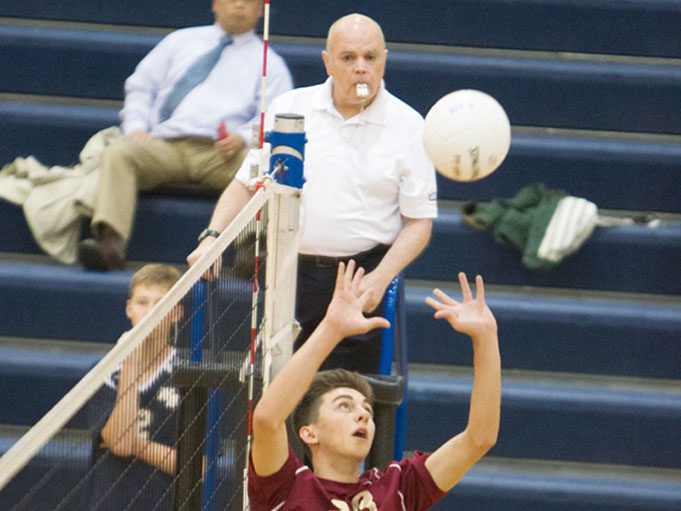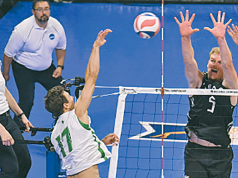Where do I draw the line with ballhandling? When do I want to make my “presence” known in the match by making that first ballhandling call? Am I being consistent from the start of the match until the last point? Am I “loose” to the point that anything goes, or am I so “tight” that the setters are afraid to touch the ball?
Whether you’re a veteran referee or new to the scene, you’ve probably asked yourself those questions recently. That’s just the way some matches are. You have an expectation of how you would like to call the match, but when play begins, things go in a different direction.
So where do you draw the line with ballhandling? Most of us have heard the mantra, “If you call it on the first point of the match, call it on the last point.” From the standpoint of consistency, that is a good place to start. But the question remains, when will you “enter” the match by making that first ballhandling call?
Sometimes we find out as the match progresses that the first call we make is too tight for the level of play, or that we were too lenient in the beginning and now it’s getting harder to make any calls. The latter may result in coaches saying, “You didn’t call that earlier, so why are you calling it now?” Fair enough. You might also find that as a match intensifies, you tighten up as well. Your calls become tighter as the energy level rises in the match.
Now back to our question: When do you make your presence known? The teams are waiting. They want to know how ballhandling is going to be called so they can settle in and play. To answer, let’s start with the “if you call it on the first point, call it on the last point” philosophy. And let’s add to that the philosophy that referees don’t want to be the deciding factor in the match.
So how can those philosophies help us know when to insert ourselves in the match? Consider starting where you want to end. In other words, imagine that you’re in a really hot match and it is 14-13 in the fifth set. A great rally is in progress with players hustling all over the court, making great digs and huge blocks, and then … a marginal ball contact occurs — one that you called a couple of other times earlier in the match. And for consistency’s sake, you blow the whistle again, and wham, the match is over, 15-13. With all of the excitement and energy of the match, and with spectators cheering for their teams, the match ends on a marginal call … for consistency’s sake. And you are wishing you didn’t have to make that call.
That’s where “start where you want to end” comes into play. When the match begins, imagine that scenario — fifth set with the score 14-13. And this time, imagine yourself not making that marginal call. That is where you start your ballhandling line. If you can say to yourself, “I’d have to end a set or match on that contact,” then you should whistle it early in the match, too. But if it’s marginal, truly one that some referees might call while others wouldn’t, hold your whistle and let them play. And then when that same marginal contact occurs at a crucial point, you won’t be in a position where you need to call it just to stay consistent.
Remember, flagrant or egregious ballhandling errors need to be called whenever they occur in the match, from beginning to end. But when it comes to those gray-area balls that some of us call and some of us don’t, it just might be better to let the teams play and, ultimately, decide the outcome.
What's Your Call? Leave a Comment:
Note: This article is archival in nature. Rules, interpretations, mechanics, philosophies and other information may or may not be correct for the current year.
This article is the copyright of ©Referee Enterprises, Inc., and may not be republished in whole or in part online, in print or in any capacity without expressed written permission from Referee. The article is made available for educational use by individuals.

















